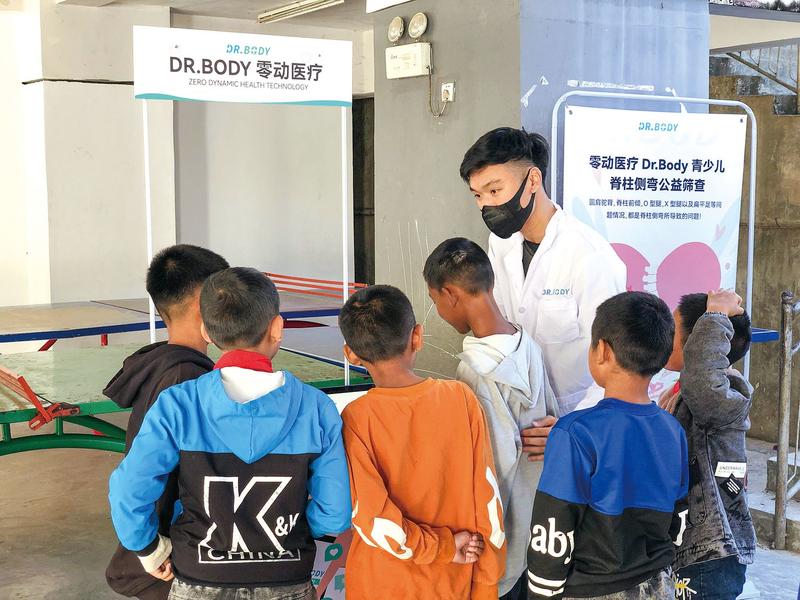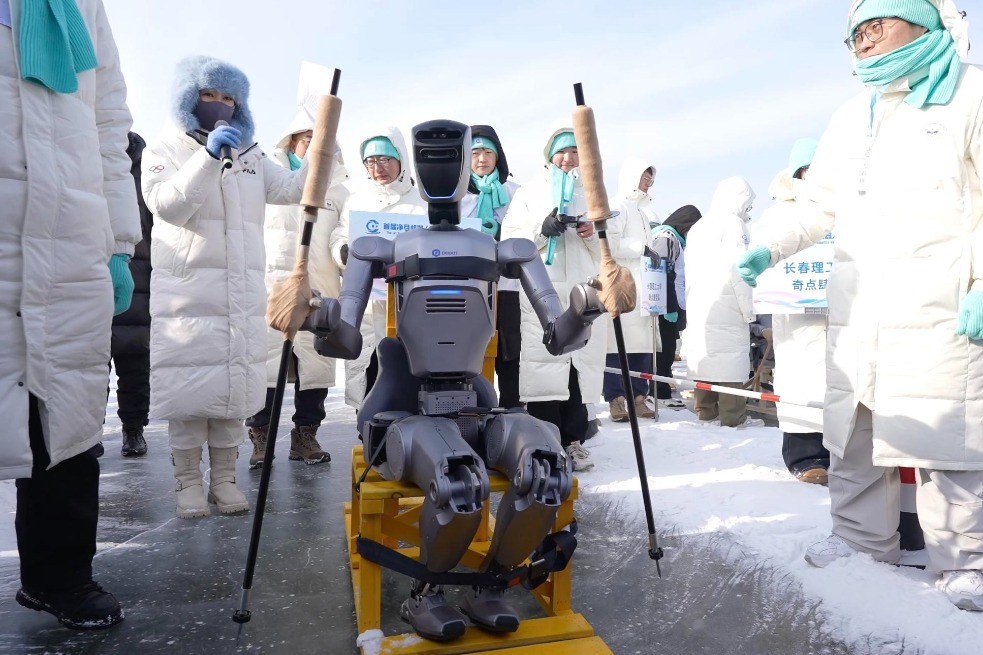Together we grow


Multitiered collaboration
Xu hopes to deepen cooperation between Hong Kong, which boasts a world-class medical system, and mainland cities in the Greater Bay Area that have strong innovation capacity. “Hong Kong is a world leader in the healthcare sector, whose endorsement will be very handy in making us known to other places. The Greater Bay Area is really great. It can fully bring together mainland and Hong Kong talents. Together, they can produce a lot of sparks,” said Xu, while urging young people to make use of the supportive policies and market advantages in Hong Kong and mainland cities in the area.
Chan from Cyberport said Hong Kong’s complementary strengths can be seen in three areas — innovation and technology financing, a business-friendly environment, and international prestige. “Hong Kong’s financial system is in line with international standards, with a flexible and smooth flow of capital. Its service industries can respond quickly to the needs of global markets and facilitate financing,” he explained.
The HKSAR’s simple tax system, coupled with all-round and mature protection of intellectual property and regulations, also help to build a good environment for business, he said, adding that Hong Kong currently ranks third globally in terms of the ease of doing business and remains an ideal destination for technology startups and companies.
“As an international hub, Hong Kong can be a springboard to help mainland enterprises in the Greater Bay Area go global and expand to Asian and other markets, while providing a base for overseas companies to enter the mainland,” said Chan.
Shenzhen-based drone maker DJI’s success story of turning itself from a startup into the world’s largest market player in the industry within a few years has put collaboration between Hong Kong students and their university mentors under the spotlight. DJI founder Wang Tao developed his first drone in the lab of the Hong Kong University of Science and Technology, where he was pursuing his postgraduate studies. He then started his business in Shenzhen, with mentor Li Zexiang offering him support in funding and human resources.
Incus — a technology startup that provides hearing aid solutions — is one of the companies on the path of such a cooperative mode. The company was co-founded by Professor Richard So Hau-yue, associate dean of engineering at the Hong Kong University of Science and Technology, and his student, Calvin Zhang Jiangang.
So, who collaborates with his student research assistants at two laboratories in Shenzhen and Hong Kong, has been trying to find a better way of identifying background noise from human voices and seeking technological solutions to noise reduction. Zhang helps to commercialize So’s research, leveraging the mainland’s manufacturing advantages. “For a startup, the two biggest challenges are money and talents,” said Zhang.
He explained that when a company is short of capital, it could mean the end. “Thus, we always pay close attention to capital. Without money, you can’t do anything and, without suitable team members, you can’t do things well.”
Zhang said collaboration between Hong Kong and the mainland would give his company more choices in seeking talent. “Shenzhen has abundant talents, especially in engineering, while Hong Kong has excellent higher education institutions to nurture potential technology practitioners. So, what we need to do is to make good use of them.”
“Hong Kong is an international city where talents from across the world gather. A team with people from diverse cultural backgrounds would create more innovative and creative ideas,” said So.
Contact the writers at aoyulu@chinadailyhk.com
























